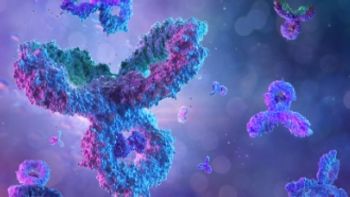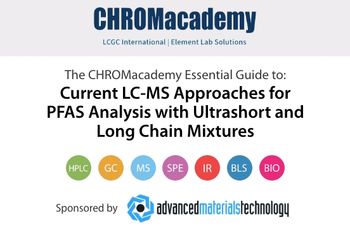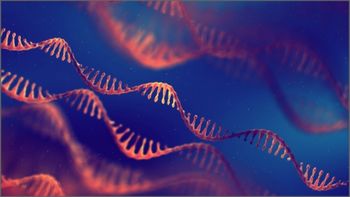
Can We Address Complexity with Automation?
Webinar Date/Time: Tuesday, September 19th, 2023 at 11am EDT | 8am PDT | 4pm BST | 5pm CEST
Find out how automation and integration of sample preparation and analysis can help you achieve higher sample throughput, improve sensitivity and reproducibility, solve complex sample preparation problems, and reduce your environmental impact.
Register Free:
Event Overview.
As an analytical chemist, you are faced with a myriad of challenges including the need for increased throughput, dealing with increasingly complex samples, meeting ever more stringent analytical performance requirements and improving the sustainability of your analyses. Automation and integration of your sample preparation and analysis workflows can achieve all these goals, but making the transition from manual sample preparation and analysis to automated and scaled down approaches can be daunting. Invest some time in learning how automation and integration of sample preparation and analysis can help achieve higher sample throughput, improve sensitivity and reproducibility, solve complex sample preparation problems, and reduce your environmental impact.
Key Learning Objectives:
- Understand which types of analysis can be automated.
- Reduce the fear factors for adopting automation into your workflow.
- Learn the vast number of automated sample preparation and instrumental analysis introduction systems available to you.
- Learn how automation can help achieve higher sample throughput, improve sensitivity, and reproducibility.
Who Should Attend:
- Anyone who feels that automation ‘is not for me’.
- Analytical chemists who believe that automation is a threat to their livelihood.
- Anyone who is open minded to realizing the benefits of automation.
- Those who wish to optimize the accuracy and reproducibility of their analysis.
- Anyone who is bored with routine sample preparation.
Speakers:
Camilla Liscio
Applications Chemist
Element Lab Solutions (Cambridge)
Camilla Licscio is the Principal Scientist at Element Laboratory Solutions-Cambridge, passionate about helping scientists implement automation, and its synergy with data analytics, within their laboratories. After a Master’s degree in chemistry at the University of Genoa, Italy, she continued her academic education path with a Ph.D. in Analytical Sciences at the University of Genoa, followed by a Marie Curie postdoctoral fellowship which brought her to the UK to the University of Sussex. Once her postdoctoral experience was complete, she moved to industry, spending three years as a Researcher in the Organic Analysis team at the National Measurement Laboratory (NML), LGC, Teddington. In 2016, she started her journey with automation when she joined Element (formerly Anatune) as an Application Chemist. In 2021, she accepted the Principal Scientist role and now looks after the operational and R&D side of the Applications team. When she is not in the lab developing new automated applications, she can be found in the kitchen cooking, walking her Japanese Spitz Scintilla or crafting.
Tony Taylor
Chief Scientific Officer, Element Life Sciences EMEAA
Element Materials Technology
Tony Taylor is the Chief Scientific Officer of Element Life Sciences EMEAA. He has worked in the pharmaceutical, polymer, contract analysis, and consulting industries for more than 35 years. He is an experienced chromatographer who isn’t afraid to admit that every day is a school day in the lab. He is a founder of CHROMacademy, the website where chromatographers to go learn. His passion for automation in the analytical laboratory started in 1995 when he developed his first fully automated online Solid Phase Extraction–Programmed Thermal Vaporising–GC_MS system. He has taught thousands of chromatographers globally, and his natural enthusiasm for analytical science makes him a very popular speaker on webcasts, podcasts, and webinars.
Register Free:
Newsletter
Join the global community of analytical scientists who trust LCGC for insights on the latest techniques, trends, and expert solutions in chromatography.





